|
Paul Weller has just released his 15th solo album, 'On Sunset'. Over the years his material has touched base with a dizzying variety of genres – folk to jazz, mid-60s rock to psychedelia, punk to prog. And much more besides. 'On Sunset' is impossible to pigeon-hole, which is fantastic. It is a deeply reflective album, the title finding Weller contemplating life through the prism of Sunset Strip in Los Angeles. Light years away from the aggressive post-mod punk The Jam played during their first stateside visit in October 1977, here the overall ambience is an enriching orchestral soul. On 'Mirror Ball,' he sounds as if he’s wistfully looking back: “The sound of soul spins through the air/Lifting up our hearts, our eyes and our ears/'Til we no longer accept our fate/We're now empowered in your wake.” But the music is decidedly forward-looking. The pop sensibilities are underpinned by folkish elements weaving around more contemporary tones, sometimes sophisticated electronic washes, other times plaintive flutes or strident brass. There’s a sudden, unexpected experimental break in the middle, reining everything in for a few moments before the refrain continues, punctuated by Parisian café squeezebox-like keyboards, dreamily-echoing vocals, then a piano outro and chimes adding the beautiful final stop. But the overlying factor propelling this sonic delight is, as with the preceding 14 albums, the crucial component: Weller’s rich, effortlessly soulful voice. The Jam: not punks The Jam came to prominence during the adrenaline-fuelled punk explosion that was apt for their own driving music. But they were never really part of that scene. The Clash invited them along for their White Riot tour in May 1977, and this was the first time they played Edinburgh, Bruce Foxton even loaning his bass to Paul Simenon at one point when his own instrument packed in. But they were always so much more than a punk band. Stylistically indebted to the Mod-era, in their sharp suits and Rickenbacker guitars, their barbed lyrics certainly fitted in with the zeitgeist. But there were no safety pins piercing the Union Jacks they bedecked their amps with. These were a nod to the Swinging 60s, celebrating the London-centric upsurge of vibrant teenage fashion and musical bravura, when The Kinks and Small Faces (two of Weller’s major influences) wrote songs that were ‘quintessentially English’ – although this was a cultural rather than political patriotism. Naively, Weller’s own nascent politics were ambiguous. From their first album, the title track ‘In the City’ castigated police brutality, while ‘Time for Truth’ attacked Labour PM Jim Callaghan: "another red balloon with a lot of hot gas." (A few year later Weller headlined the Red Wedge tour alongside Billy Bragg, Johnny Marr and others, encouraging youths to vote against Margaret Thatcher in the 1987 general election.) The Jam became one of Britain’s most successful rock acts, releasing 18 consecutive Top 40 singles. They were the first band to play both sides of the same single on Top of The Pops since The Beatles, while ‘That’s Entertainment’ remains the best-selling import single of all time. Always driven by creativity, Weller’s decision to break-up The Jam when they were at the peak of their popularity was a courageous gamble. Rather than The Jam declining into mediocrity, perhaps eking out an existence on the nostalgia circuit alongside all the other 1977 veterans still doing the rounds – The Lurkers, Sham 69 et al – his post-Jam career has always been driven by an ambition to produce something better. A lot of Jam devotees despaired of his new direction, and were less than enthusiastic about his next project, The Style Council (although many of their songs, especially ‘You’re the Best Thing’ and ‘Long Hot Summer,’ created a glowing vibe, vindicating his decision to try something different.) As Weller stated in the sleeve notes to the 1998 compilation 'Modern Classics': Don't be scared of the new, don't get bogged down in the cliches of, 'Oh it's not as good as ...' or you'll miss out on what is NOW. Two of the best from Weller's fertile careerWhen You're Young Released in August 1979, between The Jam’s third and fourth albums, All Mod Cons and Setting Sons, 'When You’re Young' is a soaring paean to youth. The bittersweet lyrics encapsulate life for the teenagers who formed the bulk of their devoted audience, caught in the uncertain vacuum between adolescence and the big, bad and often unforgiving world of adulthood. This spoke directly to me at that time as I’d just left school without any plan about ‘what next?’ “Why the world is your oyster but your future's a clam.” Yet the overarching drive of the song is optimism, and the simple lyric, “Life is a drink and you get drunk when you’re young,” is a celebration of the possibilities, not drowning in sorrow. Savages (2005) Released in October 2005, Weller’s 8th album, As Is Now is an exciting potpourri of ideas, from slow, dreamy songs evoking pagan imagery, to rhythm n’ blues stompers like ‘From the Floorboards Up,’ allowing longtime collaborator, guitarist Steve Craddock, to inject some full-blooded crunch. A standout track is ‘Savages.’ “You have no gods, they have all disowned you/You have no love, so you take it out on/People's lives in progress/That's what keeps you going when you're savages.” Over a descending piano/acoustic guitar riff, with a flute accompaniment, the melancholic lyric pours scorn in a more restrained way where the teenage Weller would have growled. The subject of the song doesn’t need to be clear-cut. Savages aren’t time-specific. You only have to switch on today’s news to see gangs of shorn-haired, beer-bellied men giving Nazi salutes. |
|
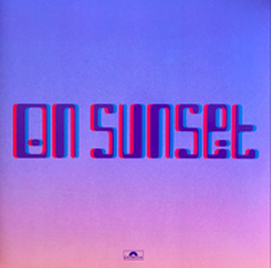
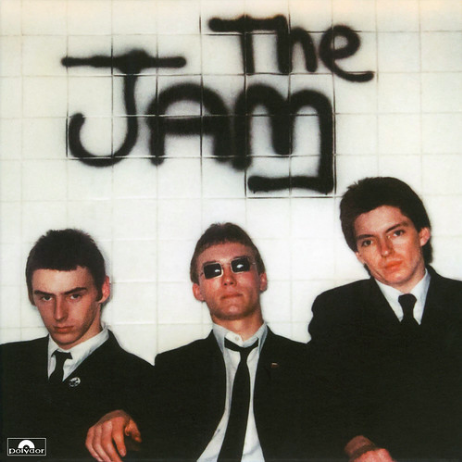
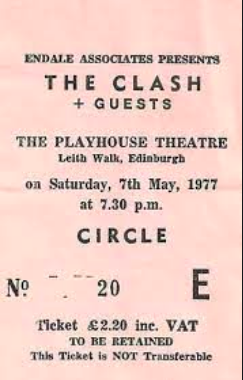
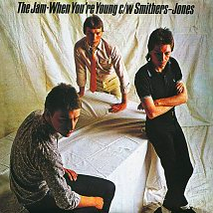
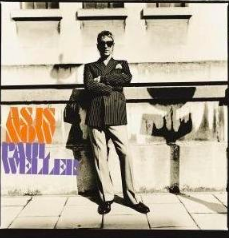
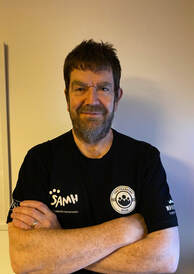
 RSS Feed
RSS Feed
